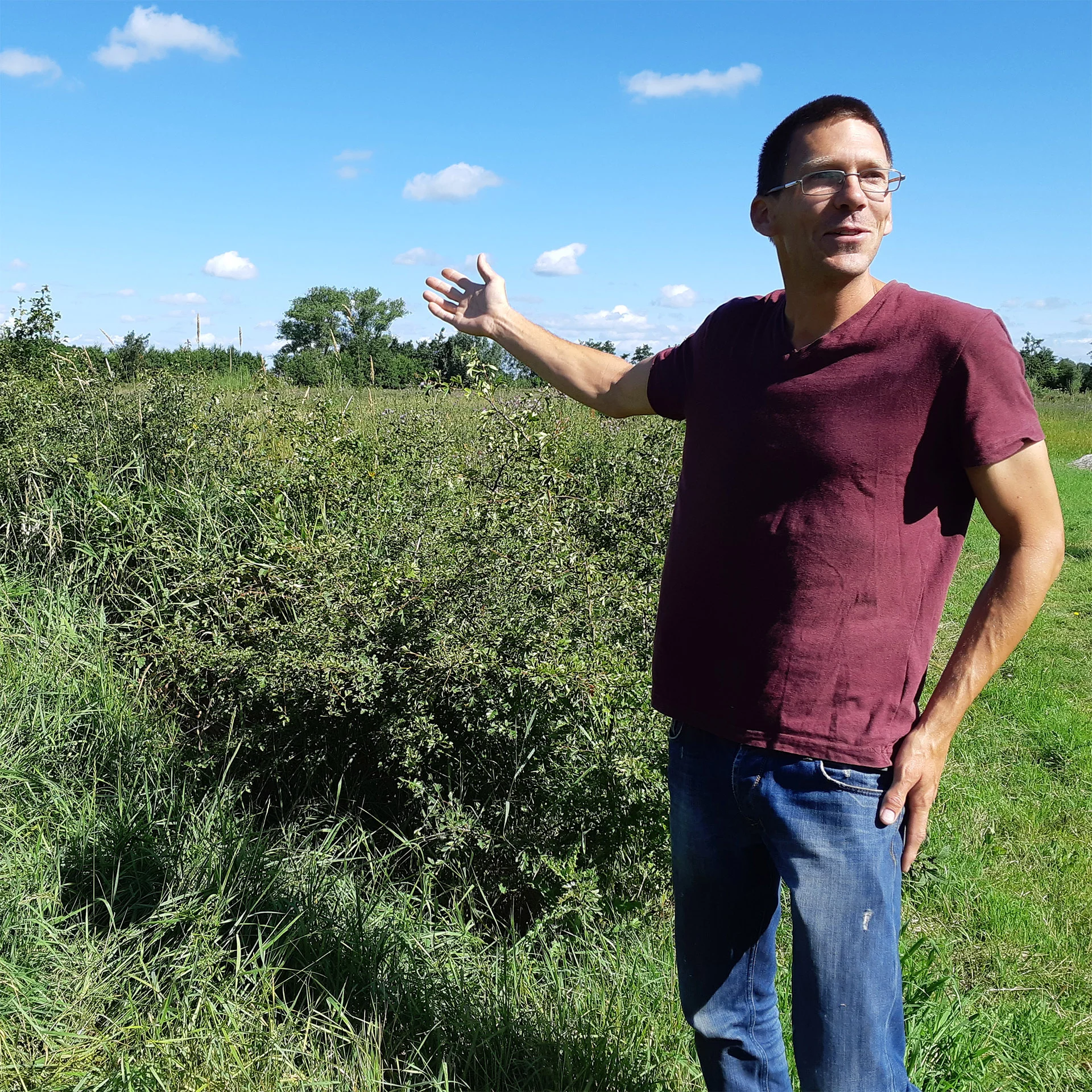Over three days, Marine Segura (Plant For Life Programme Leader), Isis Gonzalez (project manager) and Jean-Philippe Beau-Douëzi (Plant for Life expert) met up with our partners in the Netherlands. The Yves Rocher Foundation has been supporting the Heg & Landschap organisation for 10 years. This non-profit works daily with a roster of charities, all of which are inspired by the prospect of a greener way of life. Find out more !
Set coordinates for Zundert! Meeting Jolanda
Jolanda is passionate about ecology. Not only did she convince her brother to specialise in producing plants from the native seeds collected by herself but also got from the Forestry Office, she created her own nursery, Boomkwekerij PCC Van Hasselt, which specialises in bare root plants. Her land is overflowing with 70 different species. This is her way of helping to create a rich, diversified landscape:
“I want my country greener” – Jolanda
Jolanda treasures the 10 hectares of land where she grows more than 1 million plants every year. The Yves Rocher Foundation helps to fund their growth before they are sent off to the hedge-planting non-profit Stichting Heg & Landschap. Over the last two seasons, Jolanda provided all the 50 species it planted.



Ronald: guardian of the bees
Ronald Van Verbeek is a beekeeper in the town of Houten who takes care of solitary bees and flowers. As the coordinator for his non-profit organisation Houtense Bij Zaken, he works to make Houten greener by planting plots of pollen-producing trees as well as flowers. With help from 35 other volunteers, he is creating a pollinator-friendly environment to attract solitary bees and other insects.
But it is not only when the trees blossom that Ronald takes action. The municipality has given him a hectare of land to be replanted with trees. With help from the Foundation and animal protection charities, he has been given free rein to protect biodiversity.
“When you plant for bees, you benefit many others species” – Ronald
Sonne’s home is providing a haven for bees
Yes, you can believe your eyes – this is a real haven for bees! Welcome to Zeist, home to the Bee Foundation’s bee oasis. Dynamic beekeeping director Sonne Copijn is working to improve the environment for bees, bumblebees and butterflies. Aided by her local municipality and property owners, the Bee Foundation trains people and raises awareness about the importance of flowers, shrubs and how to manage public green spaces while respecting insects’ place within them. Marine, Isis and Jean-Philippe visited an oasis planted in 2019 by schoolchildren and teenagers. 600 trees are planted every year in this haven for bees.

Everyone is getting involved in Almère
In Almère, everyone is proud of the Oosterwold eco-districts. 100 or so people are taking action to develop this 4,300-hectare shared space. Here, it is the local people themselves who decide exactly what Oosterworld will look like. They choose the size of their plot, build their house there as they wish and decide on and manage the roads, water management and public space.
The locals are actively restoring the district’s plant life with help from the Stichting Heg & Landschap non-profit organisation represented by Lex Roeleved. On site, the local partner : Paradijsvogelbosje Foundation coordinate the activities thanks to Marien Abspoel. Every year, more than 100 people coordinate to ask for plants from the Paradijsvogelbosje Foundation. Once that is done, planting them becomes a social group activity. They are proud of their environment, planting 150,000 trees. These people are devoted to the task, using their free time to create the kind of diverse greenery they might never have imagined was possible. This new model offers plenty of inspiration.
“We are the kind of community where people work together. People create, experiment and are inspired by examples” – Marien Abspoel
A pantry forest
Marine and Isis returned eight years after the Yves Rocher Foundation planted its first trees in Jan Degenaar and Marteen Schrama’s Food Forest. This garden woodland is designed to imitate natural forests and supply people’s biodiversity needs. All kinds of nuts, fruit, berries, salad leaves, spices and edible flowers flourish there. This food forest is home to more than 150 edible plant species. Birds, mammals and other small insects are drawn to the forest’s lush vegetation and love wandering from one exquisite meal to the next.
Biodiversity needs to be protected. The various actions of the program aim to reintroduce the tree at the heart of concerns thanks to volunteer citizens. This participatory citizen model is positive for the management of common goods and their living environment. A collective and united movement supported by the Fondation Yves Rocher in 2022-2023!
Committed internationally, discover our other actions of the Plant For Life program !



